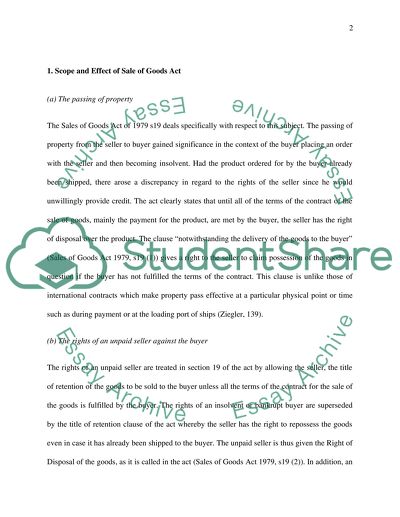Cite this document
(“Scope and effect of sale of goods act Essay Example | Topics and Well Written Essays - 1000 words”, n.d.)
Retrieved from https://studentshare.org/law/1406002-scope-and-effect-of-sale-of-goods-act
Retrieved from https://studentshare.org/law/1406002-scope-and-effect-of-sale-of-goods-act
(Scope and Effect of Sale of Goods Act Essay Example | Topics and Well Written Essays - 1000 Words)
https://studentshare.org/law/1406002-scope-and-effect-of-sale-of-goods-act.
https://studentshare.org/law/1406002-scope-and-effect-of-sale-of-goods-act.
“Scope and Effect of Sale of Goods Act Essay Example | Topics and Well Written Essays - 1000 Words”, n.d. https://studentshare.org/law/1406002-scope-and-effect-of-sale-of-goods-act.


